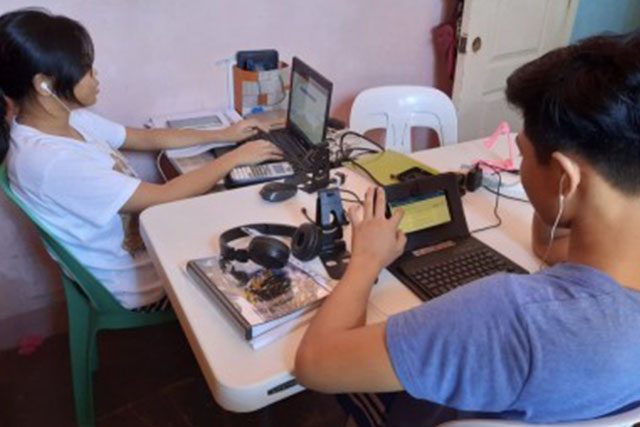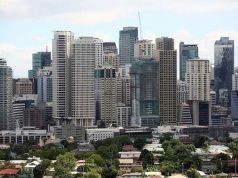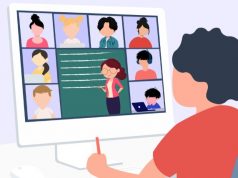
The life skills program of a non-profit organization recently received a financial support from a software firm.
As part of its 25th anniversary in the Philippines, one of the market leaders in enterprise application software, SAP, donated USD25,000 to support the Batang Bayani Life Skills Program of the Teach for the Philippines.
What is Batang Bayani Life Skills Program?
Ginny Villa-Real, director of Program & Training at Teach for the Philippines, said the Batang Bayani Life Skills Program or the Young Hero Life Skills Program was developed because they believe that academics alone cannot change a life path of a student.
“We need to complement this (academics) with developing their life skills and making sure that they are prepared with social and emotional skills that they need in order to be successful in whatever path they choose,” Villa-Real said in a press conference last week.
It was initially developed to address the socio-emotional learning of students including their self-management, decision-making and relationship skills. However, in 2020, they revised the program to meet the demands brought by COVID-19.
Villa-Real said the program was revised to suit the needs of public students in the current COVID-19 situation.
“We believe that students will need additional capability support to transition to new and different ways of learning during the pandemic,” she said.
Teach for the Philippines cited that since face-to-face classes have been canceled, students must now adapt to online classes and modular approaches. Because of this, Villa-Real said parents then should develop support their children’s learning at home as they are now the primary teachers of student.
The Batang Bayani Program’s goal is for children to be able practice positive behavior towards learning at home.
It is divided into two programs—Gabay sa Gabay workshop dedicated for parents and Batang Bayani Program workshop dedicated for students who are on the Grades 4 to 8 levels.
For the Gabay sa gabay workshop, parents would be taught how to handle stress, build relationship with their children and also learn basic teaching skills that would support their children’s learning at home.
The Batang Bayani Program workshop, on the other hand, teaches students to be more independent and identify their areas of growth, build critical-thinking and make decisions on their own.
These programs are delivered in three modalities: online through video calls, recorded audio/videos that will be aired on television and radio and modular approach – wherein the teachers would deliver printed modules/workbooks to students and parents while they are at home. .
The current pandemic adversely affected more than 27 million learners in the Philippines, many of whom live in areas with poor connectivity and minimal access to technology.
The need to support the teachers’ development in contextualizing and navigating the digital landscape is crucial to ensuring learning continuity amid the current situation.
Life skills program beneficiaries
Meanwhile, SAP’s grant is eyed to aid the program’s training for 100 educators, composed of parents, guardians, and co-teachers. It will also help in the student development curriculum implementation for around 300 public school students.
The program’s implementation will coincide with the academic year 2021-2022, as announced by the Department of Education.
Clarissa Delgado, CEO of Teach for the Philippines said the collaboration with the software firm will enable them to reach both public school students and their parents.
“At Teach for the Philippines, we believe that all Filipino children deserve a sense of possibility and have the right to an education without compromise,” Delgado said.
“Our collaboration with families ensures that our students grow up to become responsible citizens who can articulate their goals, understand the path to attaining them, and thereby be in charge of their own life trajectories,” she said.
“Amid the ever-changing education context both locally and globally, we are grateful to be working alongside a strong champion of education like SAP Philippines. SAP Philippines trusts not just in the work that Teach for the Philippines does but also believes in the potential of Filipino public-school students to shape our country’s future,” Delgado also said.
Aside from Teach for the Philippines, SAP also has University Alliance project, a global program integrating the latest SAP technologies into the educational curricula.
It has currently 15 member universities in the Philippines.
SAP also collaborated with the ASEAN Foundation to run a flagship program, ASEAN Data Science Explorers (ASEAN DSE). This initiative has educated more than 16,000 young people across 370 institutions of higher learning in the 10 ASEAN countries to increase their digital literacy, particularly in using SAP Analytics Cloud and has helped cultivate a greater sense of responsibility and ownership of the region’s future.
In the Philippines, the initiative has trained 5,561 students and lecturers across 87 Institutes of Higher Learning.
With global expertise and knowledge of the local market, SAP has helped more than 1,800 companies for the past 25 years in the country as part of its purpose to help the world run better and improve people’s lives.
The software firm began its operations in the country in 1995.









